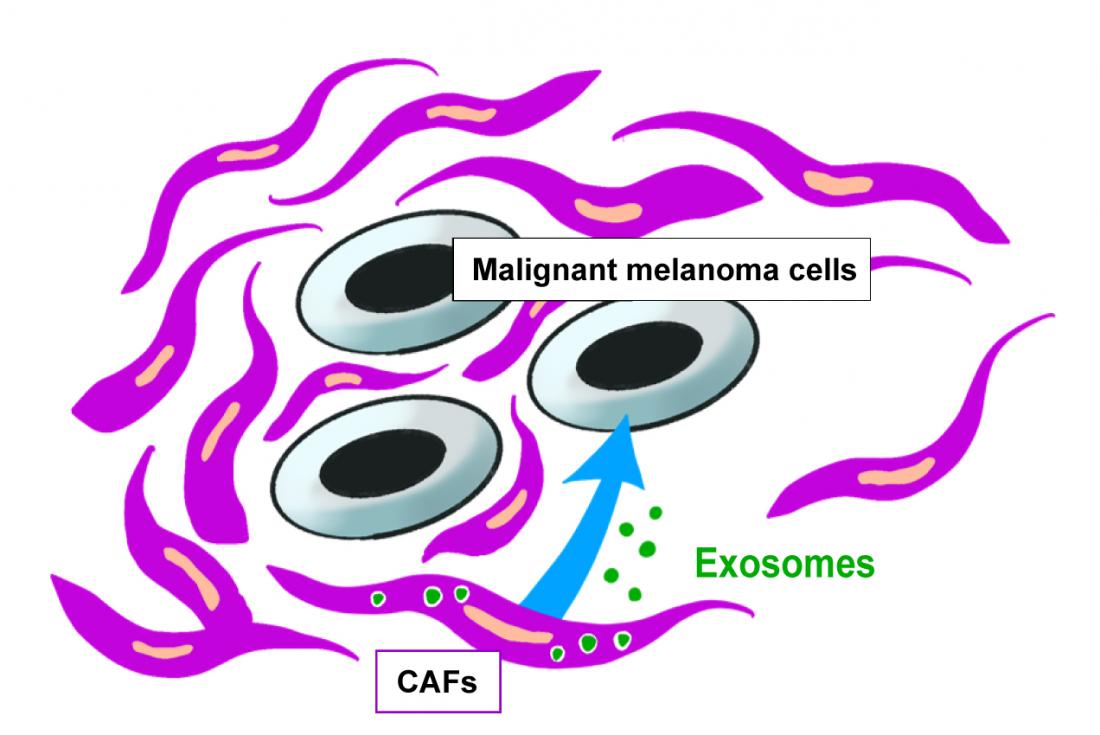Osaka Metropolitan University researchers have found that exosomes, a type of small vesicle, produced by cancer-associated fibroblasts (CAFs) play an important role in the progression skin cancer and assessing them could be a useful prognostic factor of malignant melanoma.
Malignant melanoma is a relatively aggressive type of skin cancer. When detected early, it is usually treatable by surgical resection only, but metastases develop often spreading to distant areas. Currently, tumor thickness and the presence of ulceration are some of the known prognostic factors used as indicators of malignant melanoma. Therefore, the discovery of valuable markers to assess the malignant potential of melanoma more accurately may be necessary to develop appropriate treatments.
Cross talk between cancer cells and surrounding stromal cells is believed to orchestrate cancer progression through a variety of mechanisms. Cancer-associated fibroblasts (CAFs)—key factors in the tumor microenvironment—in particular have been implicated in cancer cell progression. It has also been reported that the exosomes, a type of small vesicles, produced by CAFs play an important role in cancer progression.
A research group led by Naho Fujii, M.D., and Professor Hisashi Motomura from Osaka Metropolitan University Graduate School of Medicine investigated the effect of CAF-derived exosomes on the growth of malignant melanoma cells. The group found that the transmembrane proteins CD9 and CD63 were mainly present on CAF-derived exosomes, and that among the exosomes, the CD9-positive ones inhibited the growth of malignant melanoma cells.
“As a plastic surgeon, usually I provide surgical treatment for skin cancer, but I have wanted to study other treatment methods for a long time,” explained Fujii, M.D. “This study suggests that CD9-positive exosomes inhibit the growth of malignant melanoma, so CD9-positive exosomes may be a useful marker to evaluate the malignant grade of melanoma. We expect further research will lead to the development of new treatments in that line.”
###
About OMU
Osaka Metropolitan University is a new public university established in April 2022, formed by merger between Osaka City University and Osaka Prefecture University. For more research news visit https://www.omu.ac.jp/en/ or follow @OsakaMetUniv_en and #OMUScience.



